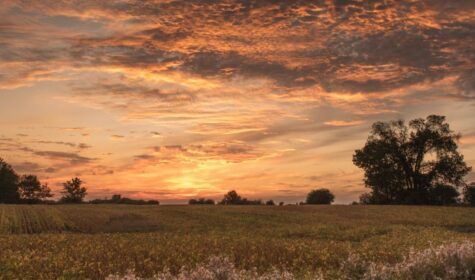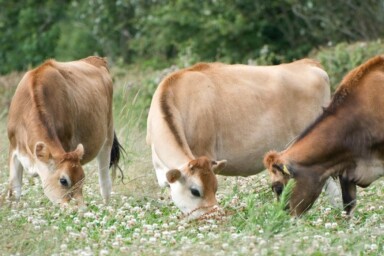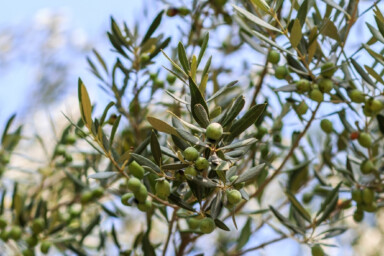Escape the Saturday evening endless-scroll and settle down with one of the latest films from the world of food and farming.
The Ants and the Grasshopper
Director: Raj Patel; contact Kartemquin Films for viewing
Raj Patel’s latest film is an exploration of perspective – it’s all a matter of how you are looking at things. The champion of the movie is a young farmer, Anita Chitaya, in Malawi. Women are traditionally responsible for food production in Malawian culture – the men are largely left to hang about. Anita is up at dawn drawing water for the day; she is acutely aware of climate change. Rain in the region is coming far less frequently and growing the food needed is getting harder. She is an activist and community leader, looking for better ways of working, so that it’s easier to survive. But she knows that in other places in the world, in America to be precise, there are people not attending to what is happening on the earth.
Driven by a deeply felt concern for this, she wants to speak about climate change to farmers in the US. Anita travels across America visiting an array of different farms both urban and rural, asking about each farmers thoughts on climate change and getting a diversity of responses. There is clearly a lack of consensus about whether climate change is happening. What haunts the film is the quiet frustration of wanting to be heard. It is, inevitably, a struggle and coming from a place so small, she is trying to change beliefs in a place so large. Anita comments at the end, that ‘there are so many ants, but only a few are lifting the grasshopper’.
Under the Soil
Director: Archie Guinchard; Amazon Prime
Mental health among farmers and farm workers in the UK is a significant issue – between 2019 – 2020, 133 farmers and agricultural workers committed suicide and a 2021 survey found that 88% of farmers under the age of 40 said they had poor mental health. Farming is a hard, difficult profession, subject to struggle and failure, and these figures testify to its toll. Under the Soil, in a series of interviews, takes a close look at the issues that farmers and farm workers struggle with. Through three interviews, it picks apart the dangerous decline in mental health that can lead to depression and potentially suicide.
Matt, a young farmer building his own herd of sheep, is faced with the impact of a sudden devastating snow storm that kills many of his sheep. Forced to make difficult decisions over what animals to save in this crisis, he descends into depression in the aftermath, now facing significant financial loss. A second late spring storm brings further loss.
Risk is an ever-present pressure in farming, and weather a constant threat – both capricious and dangerous. Making the bottom line work is something many farmers struggle with throughout their farming life. But the money and the weather are just one aspect of farming that is hard; it can also be a lonely, exhausting existence that pushes people to their limits, and support is much needed. The final interview of the film is with Emma; she lost her husband, an agricultural worker, to suicide and as a way of leaving a meaningful legacy for her husband, she founded the DPJ Foundation to support the mental health of farmers and agricultural workers. The Foundation’s programme is called ‘share the load’.
Follow the Food: Series 1, 2 & 3
BBC
This BBC series takes a comprehensive look, across three seasons, at our food system and the issues at stake – series 3 is just kicking off. The world is producing more food than ever before, but at great cost to the environment, biodiversity loss and climate change. One in three people do not have enough to eat, despite the fact that there is a vast amount of food waste across the world. Food security is a continuing issue in many countries and it’s not just about having enough food, it’s also about having the right kind of food to nourish a person. And ironically, the people producing our food, are the least able to afford it.
With James Wong as the presenter, the critical problems that we face in food production are unpicked in detail, with a focus on food affordability, availability, resilience, quality and safety. Series 1, which started in autumn 2020 looked at the impact of COVID-19 on food supplies and followed on with problems of hunger, soil degradation, food waste and how tech might change the way we farm; series 2 takes on the role of food production in climate change and topics like ‘Why we need to expand our diet’ and the often overlooked issue of where the next generation of farmers are coming from.
The first episode of series 3 asks a big question, ‘What would it take to produce cheap, healthy food for everyone on the planet without harming the environment?’, perhaps both the easiest and the most complex question to answer in a world teetering on potential collapse. Food production is at the heart of our global problems, so watch this and get a grip on what we face!
Fat Fiction
Director: Jennifer Isenhart; YouTube
The dietary guidelines of eating less fat have been at the root of US food policy for decades, but more recently thinking about the role of fat in diets is changing significantly.
From the 1950s onwards, American diets began to change, largely as the result of one highly influential figure: Ancel Keys, a physiologist who was researching cardiovascular disease which was on the rise. Keys hypothesis that dietary fats were the cause of heart disease and should be shunned, remarkably became the dominant orthodoxy of US food policy, despite no robust evidence.
Fat Fiction unravels what led to the belief that saturated fat is bad for you. Saturated fat, in particular linked to animal fats, has been demonised for its role in cardiovascular disease. Immortalised in the longstanding US ‘food pyramid’, carbohydrates have for decades been the basis for a supposedly ‘healthy’ diet.
The film pulls up some extraordinary figures in terms of the resulting food policy that gained traction in the 1980s: servings of 7 – 11 slices of bread per day, 55% of calories coming from carbohydrates, and with fat consumption reduced to less than 10% of dietary consumption.
Gary Taubes, speaking in the film, argues that ‘…medical orthodoxy latched on to the wrong explanation and made a tragic mistake, and now we’re living with the consequences. It’s a fascinating watch and well worth the time. It will make you rethink how you eat and maybe even bring change for the better.





